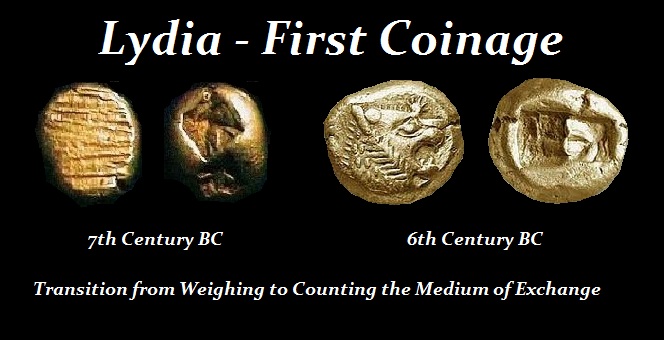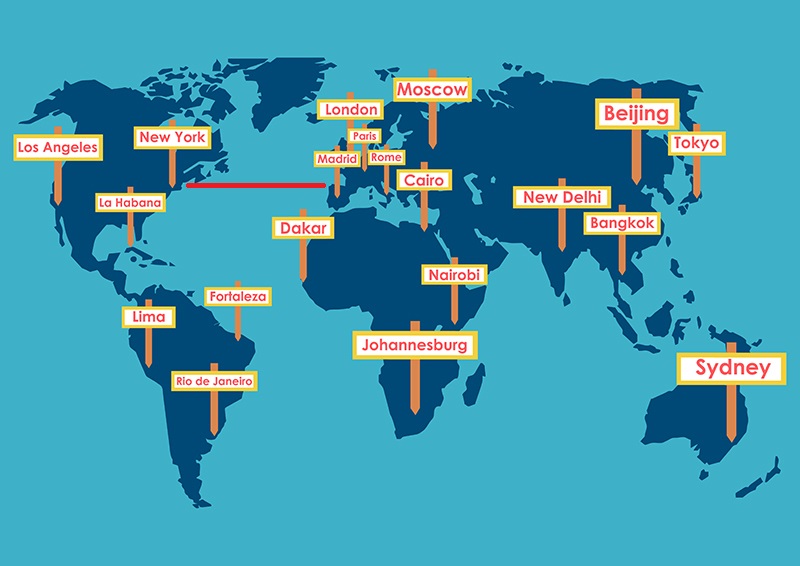Turkey – Failed Coup – Real or Fake?
Posted Jul 20, 2016 by Martin Armstrong
QUESTION: Mr. Armstrong; You have been warning that we are in an upward trend now for civil unrest which includes coups to revolutions as distinguished from a foreign war or invader. At the Berlin cocktail party last year you said Turkey was a risk for the risk in civil war. You said it should begin next year. Was this failed coup attempt what you were referring to?
ANSWER: Turkey has a history of military coups— 1960, 1971, and 1980. It has had two cycles running through its political history since the fall of the Ottoman Empire in 1920. The two cycles are 8.6-year based frequencies. The armistice of October 31, 1918, ended the fighting between the Ottoman Empire and the Allies. However, it did not bring peace to the region. The Sultan, Mehmed VI, feared he would be deposed, but the Allies knew he was a figurehead and hoped that his retention would ensure post-war stability. They did not want to cut off his head in fear that his replacement would be far worse.
In November 1919, the Ottoman government did nothing to stop the Allies. The Allies delayed the signing of the peace treaty known as the Treaty of Sèvres (1920) with the Ottoman Empire only because they were arguing among themselves over who would take what countries. The treaty was not signed until August 10, 1920, confirming French and British possession of Syria, Lebanon, Palestine, Jordan, and Iraq in the guise of League of Nations mandates.
Sharif Hussein ibn Ali was rewarded for his leadership of the Arab Revolt with international recognition of the Hejaz as an independent kingdom. The treaty effectively gave the Greeks possession of eastern Thrace and ‘Ionia’ (western Anatolia); the Italians got the Dodecanese Islands and a ‘zone of influence’ in southwestern Anatolia. To the east, the Armenians were given an independent state, taking in much of eastern Anatolia, while the Kurds were granted an ill-defined autonomous region and promised a referendum on independence, which has yet to take place. The Ottoman state’s army was limited to 50,000 men and its navy to a dozen coastal patrol boats with no air force whatsoever.
It was at this point that Mustafa Kemal emerged as a leading figure in Turkey. His rule brought a form of Turkish nationalism that was very different from the pan-Turkic ideals up to that point. Kemal believed that the once-great Ottoman Empire had become a dead weight on the Turkish people who needed a homeland of their own. Keep in mind that the Turks invaded that region and took the territory from the Greek Byzantine Empire when the last emperor, Constantine XI (1448-1453), died on the walls of Constantinople in 1453, ending more than 1,000 years of history.
Kemal and his supporters sought to establish a new Turkish state based on Anatolia, where most of the empire’s Turkish population had traditionally lived since the fall of Byzantium. Kemal and other nationalists began hiding weapons from Allied disarmament teams and encouraged the formation of local Turkish civilian militias and political alliances between nationalist groups. They also attempted to divide the Allies through political intrigues, which was rather easy to do.
The greatest military threat to the Turkish nationalists came from the Greeks, whose claims to western Anatolia, eastern Thrace, and Constantinople were reinforced by the large ethnic Greek populations in those regions. The Greeks occupied Ionia for thousands of years and fought against the Persian invaders ever since Cyrus the Great. It was here that coinage was invented by the Greeks, first with the standardization of weight, and then by impressing a design to guarantee its authenticity by the king of Lydia. On May 15, 1919, Greek troops occupied the ancient port city of Smyrna (modern-day Izmir). More Greek forces arrived in the following months, gradually extending their control deep into the west Anatolian countryside. Clashes with Turkish civilians dogged their movements and greatly increased nationalist sentiment. Meanwhile, the Italians landed troops in south-western Anatolia to reinforce their claim on that region. This also played into the hands of the Turkish nationalists and fueled their movement.
As Turkish attitudes began to rise toward nationalism, the interim Ottoman government came under increasing pressure from the Allies to suppress these nationalist groups. In the end, they were reluctantly forced to act, but this backfired. On April 23, 1920, the nationalists convened a Grand National Assembly in Ankara. They elected Mustafa Kemal as its first president, establishing what was essentially an alternative government. This triggered a civil war.
The British and French had demobilized so there was no military support available for the Ottoman government. This civil war ended only when the details of the Treaty of Sèvres were publicized in August 1920. The harshness of the terms in the Treaty of Sèvres destroyed all credibility of the Ottoman government and exposed what they had agreed to that ended the Ottoman Empire. Turks of all political persuasions began to unite at this point behind the new Grand National Assembly, which completely stood up and rejected the Treaty of Sèvres. A showdown with the Allies seemed at this point inevitable.
Only the Greeks could muster any troops, but they saw this only as an opportunity to gain more land in Anatolia. This set the stage for what the Turks call the Turkish War of Independence. The Greek Army made rapid progress and advanced from Smyrna in June 1920, capturing much of western Anatolia. The Greeks initially outnumbered the Turkish nationalists and were better equipped. Kemal agreed to help Bolshevik Russia destroy the newly independent Caucasus states in exchange for restoration of most of the territory they had lost in the 1877–78 Russo-Turkish War. This secured eastern Anatolia and extinguished any chance of independent Armenian or Kurdish states taking emerging there.
American President Woodrow Wilson supported the Armenian bid for independence in that area and condemned these actions. Kemal knew the USA would not intervene with Russia on their side. Kemal’s government also bought off the French by promising to support their rule over Syria in exchange for tacit recognition that all of Anatolia was Turkish territory. Kemal was smart and played one side against the other. Kemal then struck an agreement over the Dodecanese Islands with the Italians, who in turn withdrew their troops from Antalya in June 1921. It was through such diplomatic maneuvering that the Turks gained access to the international arms trade. Kemal effectively isolated the Greeks. British support for the Greeks was a personal passion of Prime Minister Lloyd George whose cabinet did not share. Kemal has isolated the Greeks by playing the Allies against each other.
Kemal’s strategy was to render Greeks their only military opposition. In March/April 1921, the new Turkish Army turned back the first major Greek offensive. The Greek Army in Anatolia was increased to 200,000 men. Kemal assumed direct command at the Sakarya River and ended a three-week battle resulting in Turkish victory. Finally, in August 1922, the Turks carried out a large, carefully prepared offensive that threw the Greeks into a headlong retreat to the coast. All Greek troops were evacuated from Anatolia by September 16, 1922. The war was over and Turkish Independence was won.
On October 13, 1922, Ankara officially became the capital of the new Turkish state. On October 29, a republic was proclaimed with Mustafa Kemal as its first president. Turkey’s Grand National Assembly abolished the Sultanate on November 1, 1922. Mehmed VI and his family sought refuge with the British military authorities in Istanbul. They were smuggled out of the city and eventually went into exile in San Remo, Italy, where the former monarch would later die in 1926.
1960 Turkish coup d’état
1971 Turkish military memorandum
1980 Turkish coup d’état
1993 alleged Turkish military coup
1971 Turkish military memorandum
1980 Turkish coup d’état
1993 alleged Turkish military coup
Interestingly, the relationship between military coups and civil wars are tightly linked. The first 51.6-year cycle from 1920 brings us to the 1971 coup. The 1960 coup d’état incident took place at a time when there was social, economic, and political turmoil. The United States’ aid from the Truman Doctrine and Marshall Plan was running out. Prime Minister Adnan Menderes was planning a visit to Moscow in hopes of establishing alternative lines of credit. The coup was staged by a group of 38 Turkish military officers acting outside the Staff Chiefs’ chain of command to prevent the political leadership from realigning with Russia simply to get aid. The incident took place on May 27, 1960. However, as the 1960s wore on, the economic conditions worsened and many Turks migrated to Germany at this time.
Turkey was engulfed in violence and economic instability. An economic recession as Bretton Woods was in trouble sparked a wave of social unrest marked by street demonstrations, labor strikes, and political assassinations. This is when left-wing workers’ and students’ movements rose up, which were countered on the right by Islamist and militant nationalist groups. The left carried out bombing attacks, robberies, and kidnappings that began in 1968 and intensified moving into the economic decline that bottomed in 1970. The left-wing violence was matched and surpassed only by far-right violence under the Grey Wolves. Then on the political front, Prime Minister Süleyman Demirel from the center-right Justice Party was re-elected in 1969. The party experienced internal disputes and split to form splinter groups of their own. This essentially reduced his parliamentary majority and brought any political processes to a halt.
Finally, by January 1971, the state of the political-economy in Turkey descended into a state of chaos. The students began to embrace Latin American style, urban-guerrilla warfare by robbing banks, kidnapping US servicemen, and attacking American targets as they became increasingly Marxist. Neo-fascist militants bombed the homes of university professors who were critical of the government and factories went on strike, bringing all services and production to a near standstill during the first quarter 1971.
The Islamist movement was rising inspired by the books of Sayyid Outb (1906-1966) who was executed in 1966 for plotting the assassination of the Egyptian President Nasser. The Islamists formed the National Order Party, which outright rejected Atatürk and Kemalism, putting them in conflict with the armed forces. The government appeared too weak with defections and squabbling. This resulted in the military coup to save the country. This event became known as the “coup by memorandum,” whereby the military delivered in lieu of sending out tanks. This was the major event on the 51.6-year cycle as the government and economy fell into chaos.
The September 12, 1980, Turkish coup d’état followed the continuing conflict between right-wing/left-wing armed conflicts, which reflected the proxy wars between the United States and the Soviet Union. It has been argued that the military allowed these conflicts to escalate to provide justification to seize control of the government outright, but this is always with hindsight. However, the violence did abruptly end afterwards the coup. For the subsequent three years, the Turkish Armed Forces ruled the country through the National Security Council before democracy was restored.
Nonetheless, our models have identified interesting correlations that suggest some government officials will often resort to “regime change” as a tactic to prevent civil war from occurring. A military coup can often provide a mechanism to avoid a dynamic escalation of conflict that would otherwise lead to civil war. Hence, sometimes the means to avert an outright civil war necessitates a coup.
The leading indicator is typically the fractionalization of political parties, which results in a breakup of political movements that then enter into conflict when the economy turns down. That economy remains the most powerful driver in the global model, and it is unquestionably the most powerful driver at predicting regime change at the polls as well as within the civil unrest cycle. For the former to evolve into the latter, we need the fractionalization of political parties. For example, we are seeing that with the hard-line Republicans refusing to support Trump. This is all part of the process of taking a step toward civil war and the break-up of countries.
Considering that the driving force to set the stage is always economic, the fiscal mismanagement of the political state is critical. We are witnessing the process in Europe as a whole. This “fractionalization” is creating heated, opposing groups at the very top of the political ladder that ultimately lead to autocratic regimes as political elites try to protect their power base. This increases the danger of political instability that leads to civil unrest and can brew into military coups or go all the way to revolution. Hence, during regime changes, whether at the hand of the people with a right to vote or by military coups, the actual revolution phase is a process that can be forecast within a global model.
In the case of Turkey, this particular failed coup was either orchestrated to fail as a means to solidify ultimate power or we are witnessing the coming clash between Islamic and freedom of region rule in Turkey. That ultimate confrontation is due in 2023 (two 51.6-year cycles from 1920).












